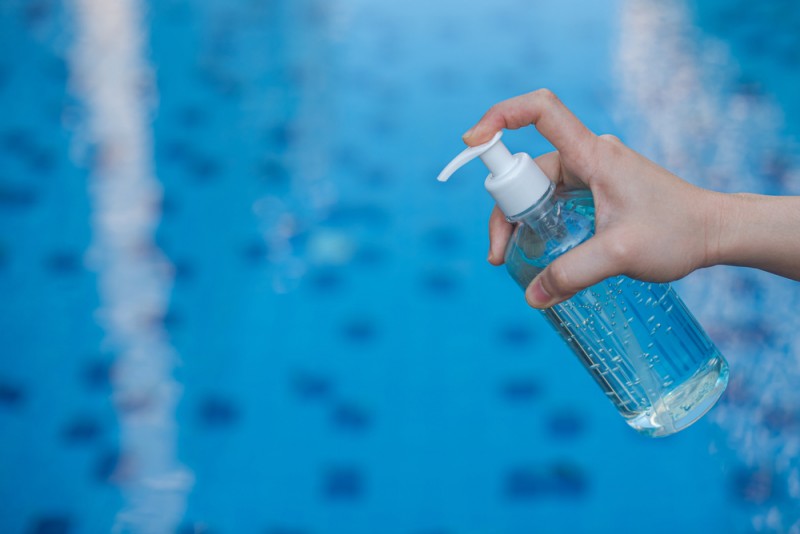Sanitizing Swimming Pool Water

The primary job of the sanitizer is to keep the swimming pool water free from bacteria, algae, and other contaminants. Sanitizers also help keep the water clear and clean. The most common sanitizers used in swimming pools are chlorine, bromine, and biguanide. Alternative sanitizing systems used more recently include Salt water Pools, Ionization, and Ozone systems. Let’s take a brief look at these sanitizing options;
Chlorine : this is the most commonly used and least expensive sanitizer for swimming pools. Usually, 3 inch chlorine tablets ( 1 inch chlorine tablets or skimmer sticks can be used as well ) are used along with a granular type of chlorine shock to oxidize the contaminants in the swimming pool water.
Bromine : is also an effective sanitizer / oxidizer. Bromine comes in 1 inch tablets and is also used with a chlorine shock. It is more stable in warm water than chlorine and works better in high alkaline and higher pH swimming pool water. Bromine is not used as much as chlorine due to the cost difference.
Biguanide : more popularly known as “ Baquacil “ this is a hydrogen peroxide based sanitizing system. Biguanides are not compatible with any other sanitizers or metallic based algaecides.
Salt Water : Salt systems are equipment that is added to the swimming pool pump and filter system. Salt is added to swimming pool water. As the saltwater passes through the salt cell, the salt is converted into chlorine to sanitize the pool. Yes, a saltwater pool is still a chlorine pool, but the chlorine that is being generated is not as irritating to the eyes and skin.
Ionization : this type of sanitizing system is also a piece of equipment that is added to the swimming pool pump and filter system. This system works by injecting copper and silver ions into the pool water to provide sanitation. In most climates, these systems will require some chlorine to keep the swimming pool clean and clear.
Ozone : This piece of equipment artificially creates ozone as the water passes through and then is injected into the water in the return line going back to the swimming pool. This works faster than chlorine and other chemicals to kill bacteria and oxidize other contaminates, they do not however, leave a residual to continue this important job. In hotter climates ozone will generally not keep up with the sanitizing demands of a swimming pool without the assistance of another sanitizer.
Contact the swimming pool professionals at Crystal Pools Inc. for any questions you have regarding the sanitizing of your swimming pool water.


